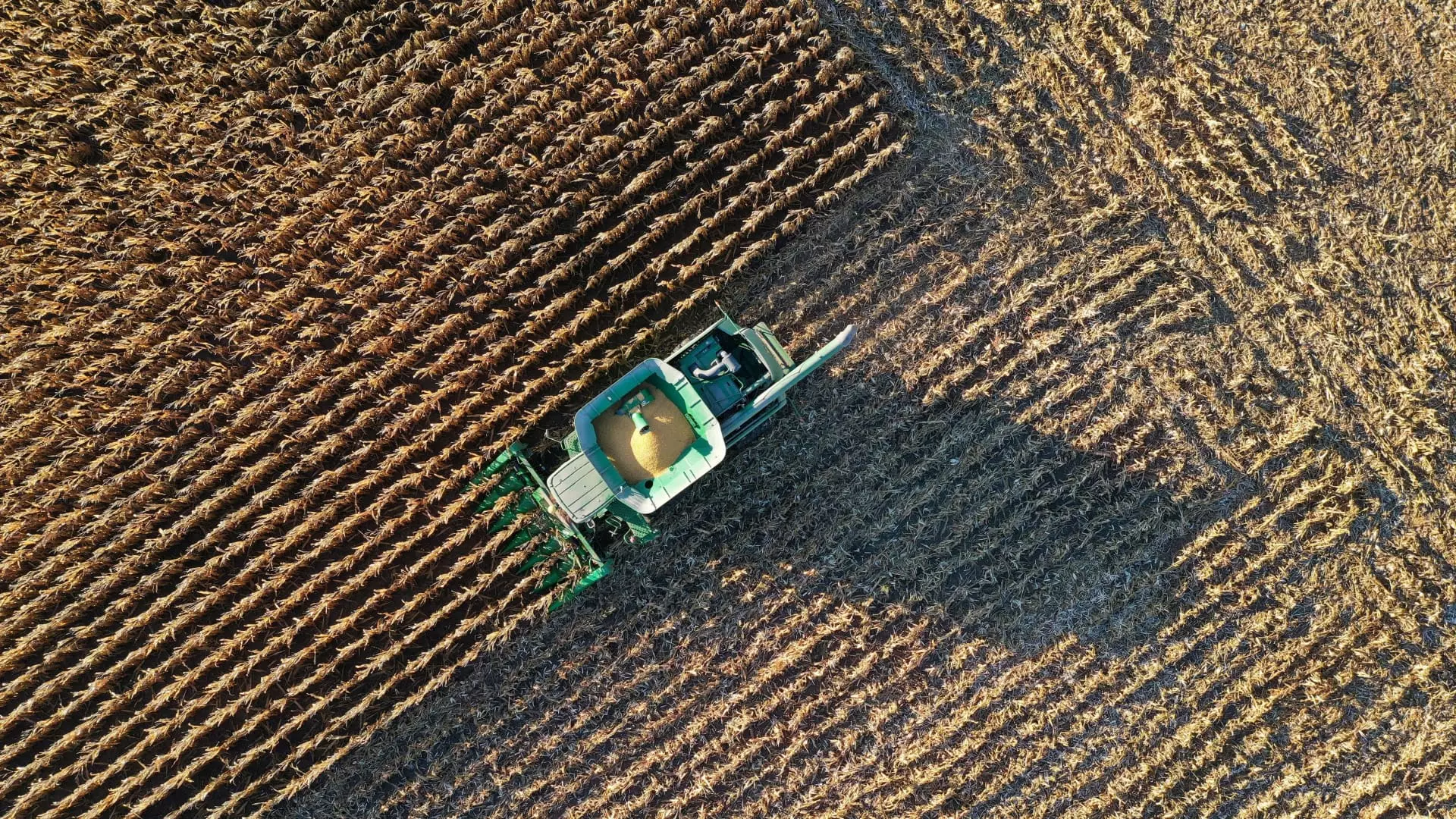The agricultural sector, often considered the backbone of the U.S. economy, is currently experiencing a significant downturn in farmer sentiment that has not been seen in nearly ten years. This shift is creating a complex environment for both producers and investors as the nation gears up for an intensely contested presidential election. According to the Purdue University/CME Group Ag Economy Barometer, farmer confidence plummeted in September, influenced by looming government policy changes and uncertain income projections for the coming year.
Declining Confidence and Financial Outlooks
A survey encompassing 400 agricultural producers illustrated a stark sense of insecurity among farmers, revealing that 78% harbor fears of more challenging conditions if policies shift post-election. This general sentiment stems from a decline in anticipated income, thus causing farmer financial expectations to dip by 18 points from the previous year, reaching a concerning index value of 68. This marks three consecutive months of diminishing financial optimism, illustrating not only a decline in farmer confidence but also a fundamental shift in how they perceive their financial future in comparison to previous years.
The pessimism around land values reflects a broader apprehension. For the first time since 2020, more farmers predict a drop in land values rather than an increase. These insights from James Mintert, director of Purdue University’s Center for Commercial Agriculture, suggest a trend towards stabilization, or even reduction, in the land market if current commodity pricing struggles continue. Mintert notes that the oversupply of products in conjunction with lower demand will likely exacerbate these uncertainties, indicating the complexities of this multifaceted issue.
The agricultural community’s apprehensions are not merely economic; they are deeply entwined with impending changes in governmental policies. The expiration of higher estate tax exemptions, which were initially endorsed during the Trump administration, is creating palpable anxiety among farmers regarding their financial inheritances and investments in land. Many are worried about potential cuts to the farm safety net, as the Agriculture Improvement Act of 2018 has not yet been renewed. The lack of a clear path forward regarding federal crop insurance and other support programs adds an additional layer of uncertainty for producers already on edge.
Ongoing discussions around the upcoming election highlight differing viewpoints between candidates regarding agricultural policies. Analysts, including Kristen Owen from Oppenheimer, predict that major legislative changes may not come until 2025. This timeline complicates the outlook further, as both parties have markedly different views on tariffs and trade, which could either bolster or impede the farming sector’s ability to thrive in the near future.
Despite the negative sentiment in the agricultural sector, certain stocks related to agriculture appear to maintain a bright outlook. Analysts like Owen have pointed to companies such as Caterpillar, emphasizing how it may benefit significantly from a Republican victory due to favorable tax policies that may emerge. Likewise, Deere could see positive short-term gains following a Republican sweep, although long-term prospects remain clouded due to ongoing uncertainties connected to trade policies.
While the stock prices of industry giants like Caterpillar and Deere have seen an upturn, reaching new yearly highs, it’s crucial to contextualize this growth within the broader economic challenges facing farmers. Jim Lebenthal of Cerity Partners believes that Deere’s robust management approach amid macroeconomic pressures positions the company well for recovering agricultural prices. This cautious optimism suggests a divergence between the large agricultural entities’ performance and the realities faced by small to medium-sized farmers.
Even amidst turbulent times for farmers, there is a narrative of sustainable growth in the agricultural sector, highlighted by companies like Green Plains, which focuses on renewable fuels. Under a Democratic win, Green Plains could capitalize on tax benefits that enhance sustainability efforts, fostering a more favorable environment for clean energy sources. This highlights a possibility for the agricultural sector to pivot toward more sustainable methodologies, providing a glimmer of hope amid the dreariness of current farmer sentiment.
As the election approaches, the uncertainties surrounding regulation, taxation, and trade policies will undoubtedly impact the agricultural landscape. With the potential for policy shifts to change the course of American agriculture, both farmers and investors will need to navigate an intricate web of factors that could shape the future of the industry for years to come. The next few months will be critical in determining how these trends evolve, underscoring the need for vigilance and adaptability in a landscape characterized by volatility and uncertainty.

